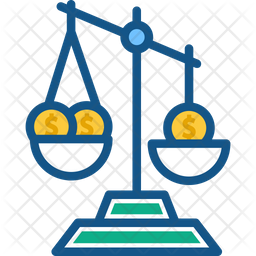Parameters to Compute a Virtual Machine
Introduction
There are various parameters using which you can easily operate a Virtual Machine. The major parameters to judge a Virtual Machine are CPU, Memory, Storage, and also the bandwidth pricing. Some of the parameters may also include the translation charges. A Virtual Machine is a set of processors and actions that is performed on a single system.
The use of Virtual Machines have increased exponentially with the increase in the requirements of these systems. It is generally quoted as just a VM and has no difference than a physical laptop and a computer. It is integrated with the CPU, Memory, Discs to store the files and process them whenever required.
Let’s have a look at the definition of Virtual Machine.
Defining a Virtual Machine.
From trying out new operating systems to backing one up, from building apps to running software’s, and from accessing old software’s to developing new software’s for other platforms, Virtual Machines can make your experience with computers much more exciting yet effortless.
A virtual machine is simply a machine that works inside a computer with its own parts like CPU, network interface and data storage, and enables features like operating numerous Operating Systems.
In our journey from VM/370 by IBM of the 1970s to the Parallel Desktop & Hyper-V, we’ve witnessed astonishing technical shifts. Today, VMs can be seen everywhere. One of the most interesting applications can be seen in public cloud services, due to their cost efficiency and personalized computation.
Now let’s have a look at the working process of a Virtual Machine.
Working of a Virtual Machine.
It is a software-based virtualization that is the process to create a software-based or “virtual” version of a computer. It is a system that is dedicated to the CPU, storage and memory from a physical host computer.
It is a computer file that is typically called an image and behaves like an actual computer. The virtual machine is partitioned from the rest of the systems, which means that it is having the software inside the VM and cannot interfere with the host computer’s primary operating system.
Let’s now have a look at the use of VMs.
What are some of the applications of Virtual Machines?
There are numerous uses of a Virtual Machine that you can use to help your business grow. The usage of the Virtual Machines are very diverse and you can easily use them to grow your business.
Here are some of the usage of Virtual Machines:
• Building and deploying apps to the cloud.
• Supporting your existing OS.
• Trying out a new Operating System.
• Accessing the Virus affected data and running an old application by installing an older OS.
• Running Software or apps on the operating system.
These are few of the usage of a Virtual Machine. Now, here are some parameters for the people following the tradition of evolution, evolution in computation of virtual machines.
Parameters to Compute a Virtual Machine
There are multiple parameters to compute a Virtual machine that can impact its performance. With the help of these parameter’s you can easily operate the performance of the virtual machine to use it effectively.
Here are some of the system requirements:
1. System Requirements: Talking about system requirements, there are certain very specific minimum requirements for hardware and software.
Hardware Requirements: For perfect computation of a virtual machine, hardware plays a vital role, here some minimum hardware required for VMM servers.
• Processor: 8 core Pentium 4, 2 GHz (x64)
• RAM: 4 GB
• Hard Drive: 4 GB
Software Requirements:
• VMware vCenter Server, required to install the AWS Elemental OVA.
• VMware vSphere web client or desktop client.
1. Initial Sizing of a Virtual Machine: There are a few key points to be kept in mind while sizing a virtual machine:
2. Core Count: For most of the cases, 4 to 24 cores is a pretty safe count. However, it's recommended to use a fewer core count because that way it’ll be simpler to shut the system down.
3. Minimum Core Count: There’s a rigid minimum core count that every VM should have and that is “2”
4. Single Session Recommendation: Two physical CPU cores per Virtual Machines for a single session is required.
5. Security: There's a principle that if the applications are deployed on more than one VMs, then there’ll be better security as compared to when multiple applications are running on the same OS. Penetrating the OS of one Virtual Machine doesn’t really affect the workload and data residing.
6. Licensing: Licensing is the most important parameter while computing a virtual machine. If your system has multiple software versions, it's recommended to use a PC as the Local License Server to license VMs. Licensing is actually really easier than it sounds, by following a few simple steps, your VM can be licensed.
These are some of the parameters to work with a virtual machine. You can use these parameters effectively to work on the virtual machine. Let’s have a look at the end and final thoughts.
Summary
There are multiple uses of a Virtual Machine that you can use to grow your business. With the virtual machines you can easily operate the tedious tasks and manage the platforms smoothly. You should keep the parameters of Virtual Machine in consideration before stepping your foot here.




Comments
Post a Comment